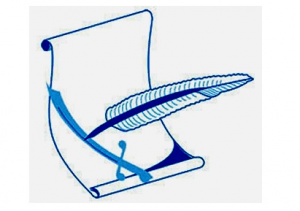GJA to Review Code of Ethics
 The Ghana Journalists Association (GJA) in consultation with its stakeholders would review its Code of Ethics to meet the current dynamics of the media landscape across the country because of the impacts of social media.
The Ghana Journalists Association (GJA) in consultation with its stakeholders would review its Code of Ethics to meet the current dynamics of the media landscape across the country because of the impacts of social media.
The Association said the presence of social media had affected the standard of journalism, therefore, it was imperative to re-evaluate the existing code to meet international standards of the professionalism.
Mr Roland Affail Monney, the President of GJA, said this in Accra when management of the National Development Planning Commission (NDPC) paid a courtesy call on the Association and the National Media Commission (NMC) to brief the two institutions about their role in the long term-development planning of the nation.
He said the media played a critical role in the dissemination of information, therefore, there was the need to invest resources into capacity building to empower media practitioners to be professional in their reportage.
Mr Monney explained that the country’s national development plan encompassed the development of all sectors, including the media, so it behoved media practitioners to be abreast with the plan and report comprehensibly and effectively to ensure its success.
Mr. Kwesi Gyan Appenteng, the Chairman of the NMC, welcomed the formal structure for engagement of the country’s development plan.
Dr Nii Moi Thompson, the Director-General of the NDPC, said the first phase of the national consultation for a long-term national development plan for the country, which involved broad public consultations across the regions, ended in 2015.
The first phase, he explained, focused on the aspirations and policies for social, economic, environmental and institutional transformation of the country.
This is being followed by technical consultations and the preparation of the long-term development plan, which would take effect in 2018.
Dr Thompson explained that the long-term development plan is a series of 10 medium-term plans that would be prepared by successive governments after the current medium-term plan, Ghana Shared Goal Development Agenda II (2014-2017).
He said the financial sources for the plan included the Consolidated Fund, Municipal Finance Authority, District Assemblies’ Common Fund, GETFund and the Ghana Infrastructure Investment Fund.
Dr Thompson said to ensure long-term solution to financing development, it was imperative to raise the national savings rate, made up of the Government’s surplus or deficit, business profits and household savings; and sound fiscal and monetary policies to sanitise economic management.
Source: GNA
